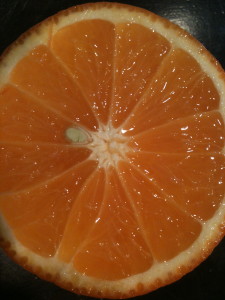By Nicola Cu cuiet and Sylvia Klinger
cuiet and Sylvia Klinger
Here you will find the top fruits in season for February:
Grapefruit
Grapefruit is high in fiber and low in calories having 42 cal/100g, and it has a powerful effect in boosting the metabolic rate, lowering insulin levels. Grapefruit is rich in vitamin A and antioxidants like vitamin C. Red varieties of grapefruit has high levels of a powerful antioxidant called lycopene that protects skin against damages caused by UV rays. This citric fruit also contains levels of B complex vitamins that are proven to prevent heart disease and lower cholesterol levels.
Plums
Plums are low in calories 46 cal/100g and contain no saturated fats and are high in minerals and vitamins. Because of their high content of dietary fiber, plums help regulate the digestive system, fighting against constipation. Fresh plums are a good source of vitamin A and beta carotene, potassium, fluoride and iron and B complex vitamins that are very important in the metabolism of carbohydrates, protein and fats.
Dates
Dates are sweet, delicious, tropical fruits that are filled with nutrients, vitamins and minerals. Dates are filled with dietary fiber and an important antioxidant called tannis that posses anti- inflammatory and anti- hemorrhagic properties. Dates are a good source of flavonoids such as beta carotene and lutein as well as iron, potassium, calcium, copper and manganese. Dates are known to replenish and revitalize the body because they are composed out of simple sugars like fructose and dextrose.
Clementines
Clementines are citrus fruits which means that they are high in vitamin C that supports the body’s immune system and assists in the formation of collagen, as well as B complex vitamins and dietary fiber, however they have no saturated fats. Clementines are low in calories providing 47 cal/100 g making them the perfect snack to help boost energy levels. This fruit is also high in beta carotene and ascorbic acid , which promote healthy vision.
Kiwi
Kiwis offer a vast variety of benefits and is rich in health promoting nutrients, minerals and vitamins. These fruits are high in vitamin C, A, E giving the fruit antioxidant proprieties, dietary fiber, potassium and magnesium and are low in saturated fats, sodium and cholesterol. Kiwis contain 85 cal/100g. Being a rich source of fiber, kiwis can be successfully included in a diabetes diets (in moderation), making the metabolism stronger as well as improving the nerve system.
Mandarin
Mandarin oranges, also known as tangerines are part of the orange family, and like it’s relatives they are also low in calories providing 53cal/100g but high in antioxidants and very rich sources of vitamin C, which is essential in the synthesis of collagen. Tangerines are also a good source of dietary fiber that helps the digestive system functions and aids in bowel movement because of its laxative effect.
Oranges
Oranges contain a vast list of nutrients, vitamins and minerals. This fruit is low in saturated fats, cholesterol and calories, but is rich in dietary fiber and vitamin C, which increases the absorption of iron and is essential in the synthesis of collagen. Oranges and all citrus fruits have vast contents of phytochemicals that are essential for overall health. This fruit is also a good source of B complex vitamins that protect against the development of heart disease.
Passion fruit
Passion fruit is a rich source of antioxidants, minerals, vitamins and fiber. This fruit provides you with 97 cal/100g . It is also a great source of vitamin C that is a powerful antioxidant that helps the body fight viruses, improves iron absorption and is essential in the synthesis of collagen. Passion fruit is also rich in minerals like iron, copper, magnesium and potassium that is an important component that helps regulate heart rate and blood pressure.
Pears
Pears are filled with health promoting nutrients like dietary fiber, antioxidants, minerals and vitamins. Pears are low in calories providing 58 cal/100g but contain important levels of vitamin C which is a powerful antioxidant. This fruit is a great source of minerals like copper, iron, potassium, magnesium as well as B complex vitamins that offer protection against the development of heart diseases.
Pomelo
Pomelo is the largest of all citrus fruits. It is low in calories providing 37 cal/100g, low in saturated fats and cholesterol but high in dietary fiber and nutrients that promote all around health. Being part of the citrus family it contains important amounts of vitamin A, B1, B2 and vitamin C that is a powerful antioxidant that has an important part in promoting health. Eating fresh pomelos and drinking the juice can help prevent free radicals from accumulating in the body.
Bananas
Bananas provide you with 116 cal/100g. being a nutrient dense fruit they represent an optimal snack during the day when you need an energy boost. Bananas are also high in minerals like potassium and magnesium which aid in maintaining normal blood pressure and promotes healthy bones.
Live life and love it. Eat well.

